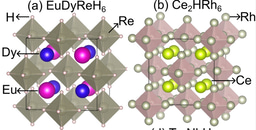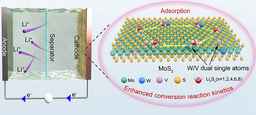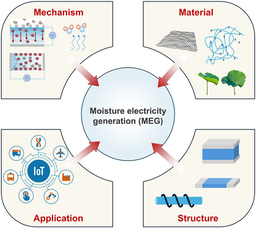AMB Express: New article collection on Quorum Sensing in Microbial Biotechnology
Published in Bioengineering & Biotechnology and Microbiology

AMB Express invites articles on quorum sensing in microbial biotechnology. This collection covers fundamental and applied studies of bacterial cell–cell signaling via autoinducers, highlighting their biotechnological implications. Topics of interest include regulation of the production of value-added compounds (metabolites, enzymes, pigments), regulation of biofilm formation, implications in virulence, development of quorum sensing-based biosensors and synthetic biology applications for microbial production, and environmental uses such as bioremediation and wastewater treatment.
🗓️ Submission Deadline: 31 March 2026
🌍 Supports SDG 6: Clean Water and Sanitation
🎓 Guest Editors:
Jorge Barriuso, PhD, Centro de Investigaciones Biológicas Margarita Salas (CIB-CSIC), Spain
Juan Antonio Méndez, PhD, Centro de Investigaciones Biológicas Margarita Salas (CIB-CSIC), Spain
🔬 Topics include, but are not limited to:
- Mechanisms of quorum sensing and diversity of signaling molecules.
- Quorum sensing in the production of value-added compounds.
- Quorum sensing in biofilm formation and strategies for biofilm control.
- Quorum sensing in microbial communities, intraspecies and interspecies cross-talk.
- Quorum sensing-regulated virulence and anti-virulence approaches.
- Synthetic biology and metabolic engineering using quorum sensing.
- Quorum sensing-based biosensors and diagnostic tools.
- Environmental biotechnology applications of quorum sensing.
📢 Submit your work and be part of advancing microbial innovation!
🔗 AMB Express
Follow the Topic
-
AMB Express

This is a high quality journal that brings together research in the area of Applied and Industrial Microbiology with a particular interest in 'White Biotechnology' and 'Red Biotechnology'.
Related Collections
With Collections, you can get published faster and increase your visibility.
Quorum Sensing in Microbial Biotechnology
AMB Express invites articles on quorum sensing in microbial biotechnology. This collection covers fundamental and applied studies of bacterial cell–cell signaling via autoinducers, highlighting their biotechnological implications. Topics of interest include regulation of the production of value-added compounds (metabolites, enzymes, pigments), regulation of biofilm formation, implications in virulence, development of quorum sensing-based biosensors and synthetic biology applications for microbial production, and environmental uses such as bioremediation and wastewater treatment.
Quorum sensing is a fascinating cell-to-cell communication process that microorganisms use to coordinate their behavior based on population density. They achieve this by producing and detecting signaling molecules called autoinducers. In microbial biotechnology, quorum sensing plays a significant role in various applications, and manipulating it offers exciting possibilities. Some of the most notable applications in recent times include: Understanding and controlling biofilms in industrial and medical settings, controlling industrial fermentations, modulating virulence in pathogens, developing novel biosensors, enhancing bioproduction of metabolites and enzymes, and applications in environmental Biotechnology, such as wastewater treatment and bioremediation.
This collection welcomes contributions on all aspects of quorum sensing in microbes and biotechnology. Topics may span fundamental quorum sensing mechanisms and applied manipulation strategies.
Topics of interest include, but are not limited to:
• Mechanisms of quorum sensing and diversity of signaling molecules.
• Quorum sensing in the production of value-added compounds
• Quorum sensing in biofilm formation and strategies for biofilm control.
• Quorum sensing in microbial communities, intraspecies and interspecies cross-talk
• Quorum sensing-regulated virulence and anti-virulence approaches.
• Synthetic biology and metabolic engineering using quorum sensing.
• Quorum sensing-based biosensors and diagnostic tools.
• Environmental biotechnology applications of quorum sensing.
This collection supports and amplifies research related to SDG 6 (Clean Water and Sanitation).
Publishing Model: Open Access
Deadline: Mar 31, 2026



Please sign in or register for FREE
If you are a registered user on Research Communities by Springer Nature, please sign in